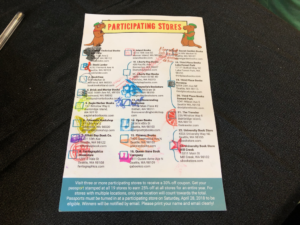This is unexpected but pleasing. Fortuitously, I’ve been reading the four extant Continuing Time novels in reverse chronological order. And lo, now there’s a new short story collection including a lot of Continuing Time material! I guess I’m going to pause before The Long Run.
Daniel Keys Moran’s The Long Run was thrillingly exciting to me in the 90s. It fit roughly into the cyberpunk category, and the author was clearly technically savvy. The computer technology rang true. Even today: yep, of course it’s possible to figure out who wrote a chunk of computer code based on their stylistic quirks. DKM is a very good stylist, unapologetic about his quirks, versed in pop culture. I could have mainlined his stuff.
Then in his next book it turns out that this cool near future cyberpunk series is actually a huge future history. Mind-blowing. And he has the whole thing planned out, cool!
And then stuff happened and he went quiet. If you search my blog for his name, I was pretty cynical about it for a while. Sorry: I was younger. I just wanted it to be true so much. Thirty books, millennia of story, huge themes, a completely confident author. It was so exciting.
Now it’s fine. He should be first and foremost happy, except that the Lakers should not win NBA championships. But anything else is just fine, and any more words are gravy. The existing books are good by themselves.
And now there’s another one, so that’s awesome!
Some of the short story collection is previously published stories; “Realtime” and “Given the Game” were both magazine publications back in the day. The Continuing Time stories look to be new. There’s a teeny bit of time overlap — “The Shivering Bastard at Devnet” is dated 2676, which is also when Lord November: The Man-Spacething War was set. “The Shepherds” is set in 2049, which is the middle of the years in which the Castanaveras telepaths were born, but perhaps more interesting is the evocative line “Peter Janssen is shot from Jupiter orbit by a Zaradin Cathedral Starship” from the timeline.
Going back to the 1994 press release on the state of the Continuing Time, “The Shepherds” is listed as a short story set in 2049. “Platformer” is listed as a novel set between 2964 and 3031. The vision has stayed remarkably consistent.
Late edit: “‘Tales’ is more than half new material, btw — more than 175 pages out of the 365 or so. None of it’s ever been collected before.” So there you go.
It’s been a while since I played the reference-hunting game in the Continuing Time. If you want to play it yourself, the old Kithrup archive is still there.
